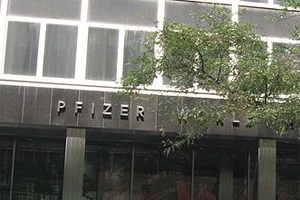
Pfizer has suffered a setback in its late-stage pipeline after one of its top oncology prospects – dacomitinib – failed to meet its targets in two non-small cell lung cancer (NSCLC) trials.
Dacomitinib is an oral, once-daily, irreversible pan-HER kinase inhibitor and had been tipped for success amid speculation it could be a better tolerated alternative to established NSCLC therapies including EGFR tyrosine kinase inhibitors.
EGFR inhibitors such as Roche/Astellas’ Tarceva (erlotinib) and AstraZeneca’s Iressa (gefitinib) have emerged as an important new therapy class for NSCLC in recent years, with the two products achieving sales of $1.1bn and $489m, respectively, in the first nine months of 2013.
The two phase III trials evaluated dacomitinib as a second- or third-line therapy in advanced NSCLC patients who had previously been treated with chemotherapy.
The ARCHER 1009 trial failed to meet its objective of demonstrating statistically significant improvement in progression-free survival (PFS) when compared with the Tarceva. Meanwhile, the NCIC CTG BR.26 study – in patients with advanced NSCLC previously treated with both chemotherapy and an EGFR inhibitor – did not meet its objective of prolonging overall survival (OS) versus placebo.
“While we are disappointed in the results, lung cancer is a complex disease, and the use of targeted agents to treat specific patient populations continues to evolve,” commented Mace Rothenberg, chief medical officer for Pfizer’s oncology division.
He pointed out that a third phase III trial called ARCHER 1050 is comparing dacomitinib to gefitinib as a first-line therapy in treatment-naïve NSCLC patients which is due to complete in 2015, and confirmed this would continue.
Analysts suggested however that the prospects for the drug – which at one point had been predicted to reach $500m-plus or more – had all-but diminished.
Pfizer’s oncology pipeline still includes some potential blockbusters, notably cyclin dependent kinase (CDK) inhibitor palbociclib for breast cancer which was awarded breakthrough status by the US FDA last April and has been forecast to reach around $2bn if approved.
The company still has two cancer drugs in the growth phase, namely NSCLC therapy Xalkori (crizotinib) and Inlyta (axitinib) for renal cell carcinoma.




